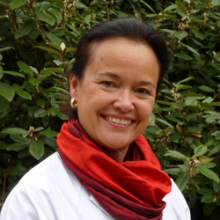
Discover in video the breast clinic, the personalised care and the professionals at the Jules Bordet Institute : What health professionals are involved in your care? What is their role? How do they meet your needs? ...
How we treat breast cancers
In Belgium, one woman in eight will develop breast cancer over the course of her life. The Institut Jules Bordet treats around 700 women a year. Our multidisciplinary teams were pioneers in a number of diagnostic and therapeutic approaches to these cancers.
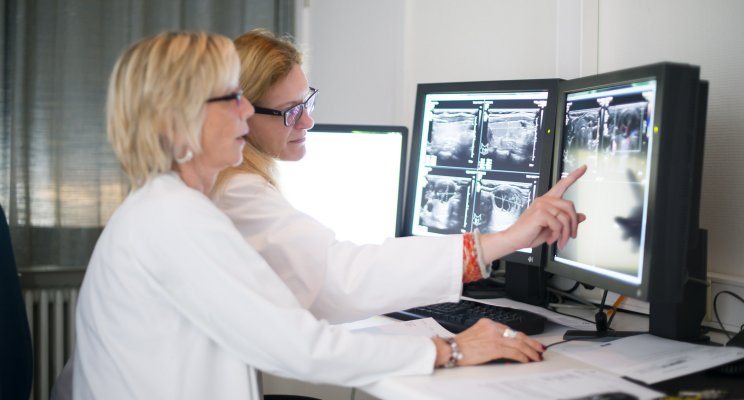
A mammogram (x-ray of the breasts) is the first examination carried out if breast cancer is suspected. Other, additional medical imaging examinations may also be used: ultrasound, MRI, etc.
A biopsy is a key element in the treatment of breast cancer and not only in order to confirm diagnosis. In fact, it is the biological and genetic characteristics of the tumour that, to a large extent, determine the therapeutic strategy to be used. The Institut Jules Bordet was a pioneer in the discovery of a genetic “signature” for breast cancer (“the genomic grade”) as a tool for therapeutic decision making and so in choosing the most effective treatments.
Surgery, drugs and radiotherapy are the 3 main therapeutic pillars of breast cancer. They are often combined.
- Surgery is essential in the treatment of breast cancer. It involves removing the tumour (tumourectomy) or, sometimes, the entire mammary gland (mastectomy) and/or the lymph nodes. The Institut Jules Bordet also offers reconstructive breast surgery.
- Chemotherapy, hormone therapy and/or targeted therapies may be administered before or after surgery. The choice of drug treatment depends mainly on the nature of the tumour and the patient’s general state of health.
- Hormone therapy may be necessary after surgery. It is used to block the patient’s hormone production.
- Radiotherapy is administered after surgery. The aim is to kill any remaining cancer cells at the site of the tumour and reduce the risk of local recurrence of the cancer. The Institut Jules Bordet was one of the first centres in Belgium to offer Mobetron® pre-operative radiotherapy for certain small-size breast cancers. This therapy is a single session of radiotherapy carried out during surgery (compared with 4 to 5 weeks of “traditional” radiotherapy).
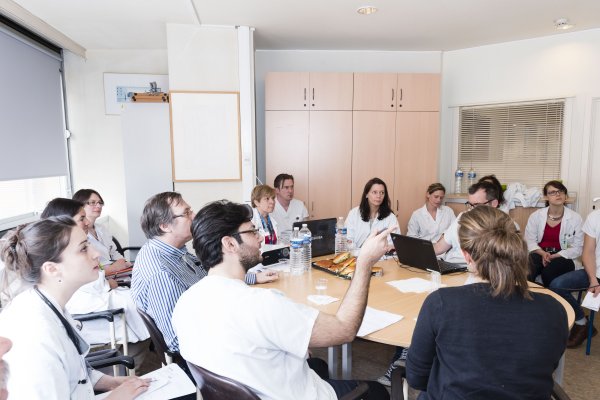
The Breast Cancer Multidisciplinary Oncology Team is composed of medical oncologists, gynaecologists, surgeons, radiologists, nuclear medicine specialists, pathologists, a cancer psychologist and cancer care coordinator nurse. The team meets every week to determine the most appropriate therapeutic strategy for each patient. The Institut Jules Bordet was one of the first centres in Belgium to put this system in place.
The Institut Jules Bordet also offers a range of support specific to women affected by breast cancer:
- A sex and intimacy consultation (sexologists, gynaecologists) for the patient and the couple
- Psychological support (individual and group)
- Our physiotherapists offer lymphatic massage and drainage to prevent and manage the arm swelling that can occur after required node removal. If this still occurs, it can be treated by consulting a lymphologist specialising in this type of problem.
The Institut Jules Bordet is also home to the world’s largest clinical and translational breast cancer research group: the Breast International Group.
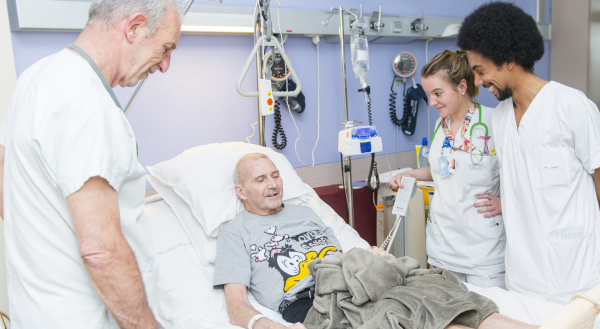
The Institut Jules Bordet's nurses, most of whom specialise in oncology, are committed to caring for patients with thought, humanity and professionalism.
Their role does not stop at care and treatment follow-up; they also meet families, and try to be as available as possible and by patients' sides while being attentive to everything confided in them.
The role of education, information and support is an integral part of their profession.
They must have relational, technical and scientific skills in line with the gravity and the complexity of the cancerous pathology.
The nurses are particularly attentive to the treatment of pain and other symptoms resulting from cancer treatment.
They also focus on their role as trainers to welcome and supervise students, and give them incentive to practice the profession in the best possible conditions.
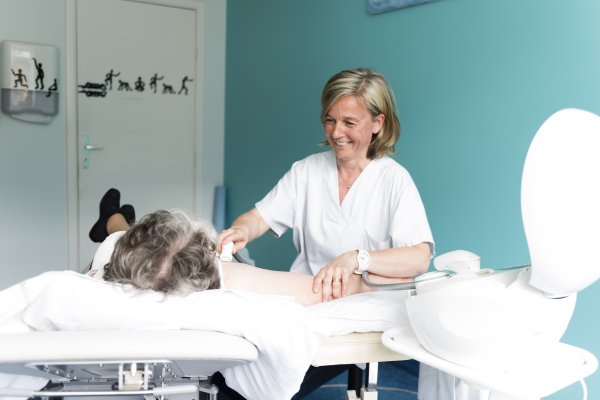
With the medical teams, many other healthcare professionals support the patients. They are dedicated to help patients in managing their illness and treatments, and to promote their wellbeing.
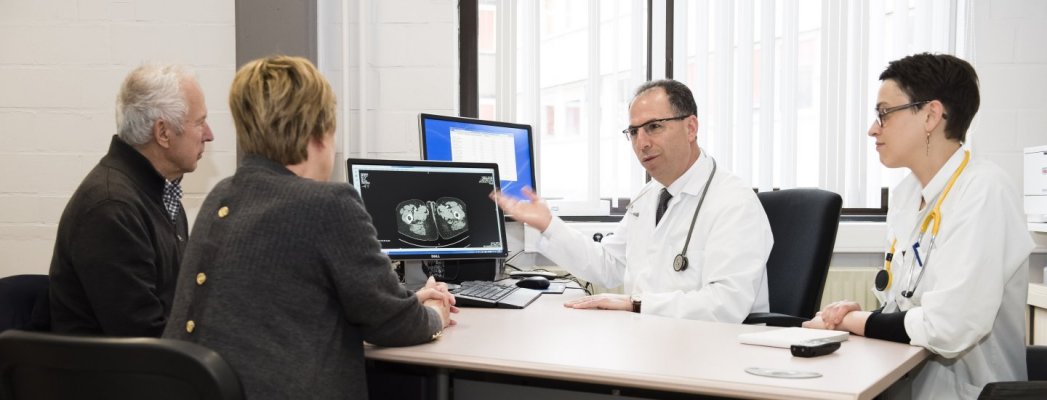
Every year many patients want to request a second medical opinion from our multidisciplinary teams.
Not all the doctors and hospitals will necessarily have the expertise, experience and/or equipment needed for an optimal approach to all types of cancer. At the Jules Bordet Institute this is our job! Requesting a second medical opinion is therefore often useful and reassuring for the patient. This is especially true in the case of rare cancers and/or cancers requiring complex or innovative treatment.
- To request a second opinion for a breast cancer:
- BEFORE surgery : Tel: +32 (0)2 541 34 58
- AFTER surgery : Tel: +32 (0)2 541 73 99
- To find out more about a second opinion, see our page "second opinion"
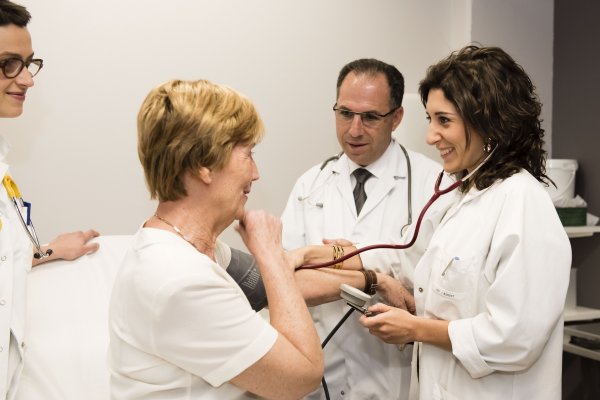
The aims of post-cancer care are multiple:
- to keep an eye on the physical and psychological state of the patient
- to manage any medium or long-term secondary effects of certain treatments
- to detect any recurrence as soon as possible
- to identify any new cancer.
Recurrence means that cancer cells reappear after a period of remission that can vary from a few months to several years. It can also happen that the same patient develops different cancers several years apart. In all these cases, the earlier a recurrence or cancerous disease is detected, the faster a new therapeutic strategy can be offered.
